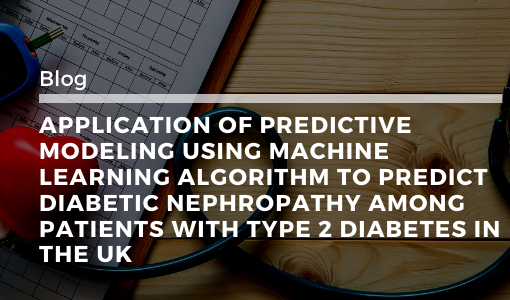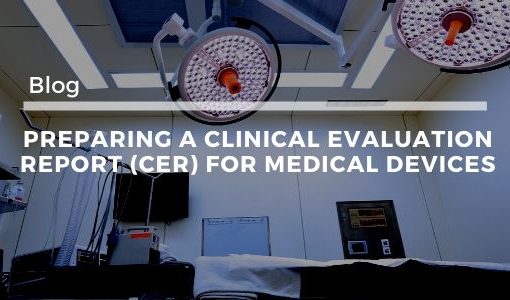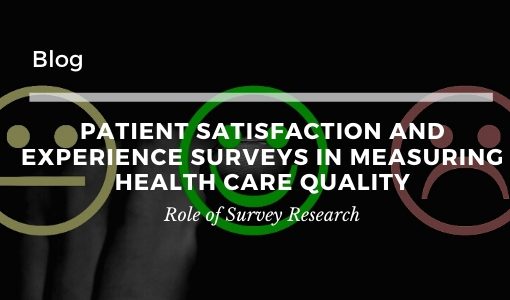In Brief
- This article delves into the potential of big data and how it is making a huge impact in the domain of healthcare.
- The article provides a look into the sources of big data in a healthcare setting and various applications of big data in the healthcare sector.
It is a known fact that information holds the key to innovative developments and better organization. Availability of information can help us in organizing ourselves in an optimized manner and facilitate enhanced outcomes. That’s primarily the reason why data collection has become an integral task for organizations’ big and small. The advantage here is that such data can be utilized for predicting current trends of certain parameters and events in future. Considering this, data collection in organizations’ has assumed much significance. As an outcome, there is an influx of data within every aspect of life such as; work, social activities, science, health etc. This current scenario can be likened to an inundation of data which is largely termed as big data in the present day. Big data holds tremendous potential in all sectors of industry; however one particular sector where the potential of big data needs further exploration is the sector of healthcare.
Big Data in Healthcare
The system of healthcare is rather multi-dimensional in nature and has been setup with the singular purpose of diagnosis, prevention, treatment and management of issues pertaining to human health. Key elements in the healthcare matrix would include the healthcare professionals and healthcare organizations. Professionals in healthcare belong to diverse sectors of health such as; general medicine, nursing, physiotherapy, dentistry, midwifery, psychology and several others. Healthcare professionals act as the initial point of contact which is primary care and further moves to secondary care and later to advanced medical investigation and treatment (tertiary care). At each of the said levels, healthcare professionals have to deal with vast volumes of data. Such data is generated from diverse sources that comprise of medical imaging, payor records, wearables and medical devices, electronic health records (EHRs), genome sequencing, and pharmaceutical research.

Figure 1. Sources of Big Data in Healthcare
With rapid progress and advancements in terms of technology to generate data, there has been a drastically growing trend in terms of data volumes. For instance, it can be observed from the human genome project that culminated in 2003 that a single human genome in the human DNA takes up around 100 – 150 gigabytes. With regards to the size of data, big data in the domain of healthcare surpassed 150 exabytes post 2011.
‘As per the findings of a recent study, it was found that the size of the data in healthcare is approximated to touch around 40 zeta bytes in 2020, a 50-fold increase from what it used to in 2009 – 0.8 zeta bytes’.
Applying Big Data in Healthcare
In the present day, big data is of much importance specifically in the healthcare sector. During the course of the past ten years, most healthcare organizations and clinics across the world have shifted to electronic health records. Such records are crucial in presents vital clinical information and an in-depth understanding of disease patterns in patients. It helps to enhance efficiency and improve the delivery of healthcare. Big data in healthcare can be applied in the following areas;
Cancer Detection
Big data could and has proven to be an effective means to detect the onset of cancer. The scope for detecting and diagnosing the disease at its initial stage is possible with big data. This allows professionals to adopt therapies that are more effective on the basis of the genetic makeup of a patient.
Back in 2013, doctors in the United States had reviewed and analyzed healthcare data and records of a Hollywood actor who had a history of breast cancer in her family. Using the data generated through genome sequencing, doctors detected the presence of the BRCA1 gene, revealing that the actor was at risk of hereditary breast cancer. On the basis of the analysis and recommendations of the doctor, the actor was able to initiate preventive measures. This is just one instance where big data and big data analytics have been effectively utilized for preventive healthcare. Since then, there have been further advancements in the manner in which the potential of big data is leveraged in the domain of healthcare.
Similarly, with big data dosage of cancer drugs can be regulated to lower any side effects while enhancing effectiveness.
Big Data in Public Health and Behaviour
The focus of big data within public health and behaviour revolves around users physiological data that is largely gathered with the help of portable instruments such as contagion, daily health records, diet, electrocardiogram, sports and vitals. With regards to infectious diseases within the public health domain, there is a very popular instance wherein Google was successful in predicting the scale and time of influenza by evaluating data from search engine results.

Figure 2. Applications of Big Data in Healthcare
Monitoring Patient’s Vital Signs
Applying big data in the domain of healthcare renders it easy for healthcare providers and professionals to execute their tasks in an efficient manner. Data generated through sensors placed next to patients plays an instrumental role in monitoring patients’ blood pressures, rate of respiration and heartbeat. Any minor fluctuation is communicated to healthcare professionals in real time, allowing them to take preemptive measures to control the situation.
Hospital Administration
Application of big data in the healthcare domain also eases the administrative procedures within a healthcare facility. It brings down costs associated with measurement of care, offer superior levels of clinical support and effectively handle patients who have been categorized as ‘high-risk’. Big data can be helpful to healthcare providers and professionals to store data in a systematic manner. This systematization facilitates healthcare professionals with an ease of access to patient data that ultimately helps them to arrive at informed decisions. This is quite resourceful in the sense that it saves precious time in finding information.
Future Scope
- As of now, several healthcare and biomedical tools like mobile biometric sensors, genomics and smartphone applications generate vast amounts of data. Thus, it becomes imperative for healthcare providers and professionals to know about and evaluate the applications and benefits from the use of such data.
- While the application of big data is tremendous, the domain of big data is also wrought with challenges. These challenges relate to the handling, storage and security of such data.
- Further investigation needs to be carried out with regards to how big data in healthcare can be effectively used for future predictions (in terms of population health). There is a need to explore whether big data can be used to predict epidemics and offer early warnings of disease conditions.






Comment here